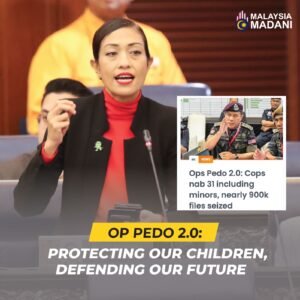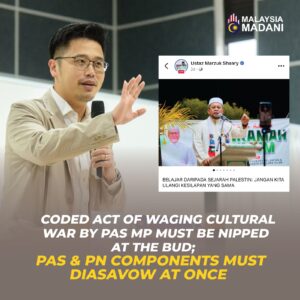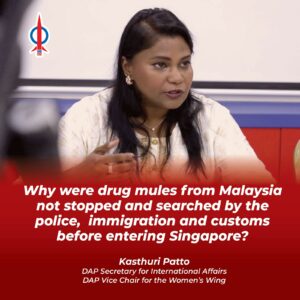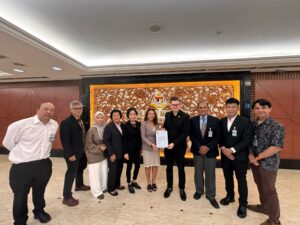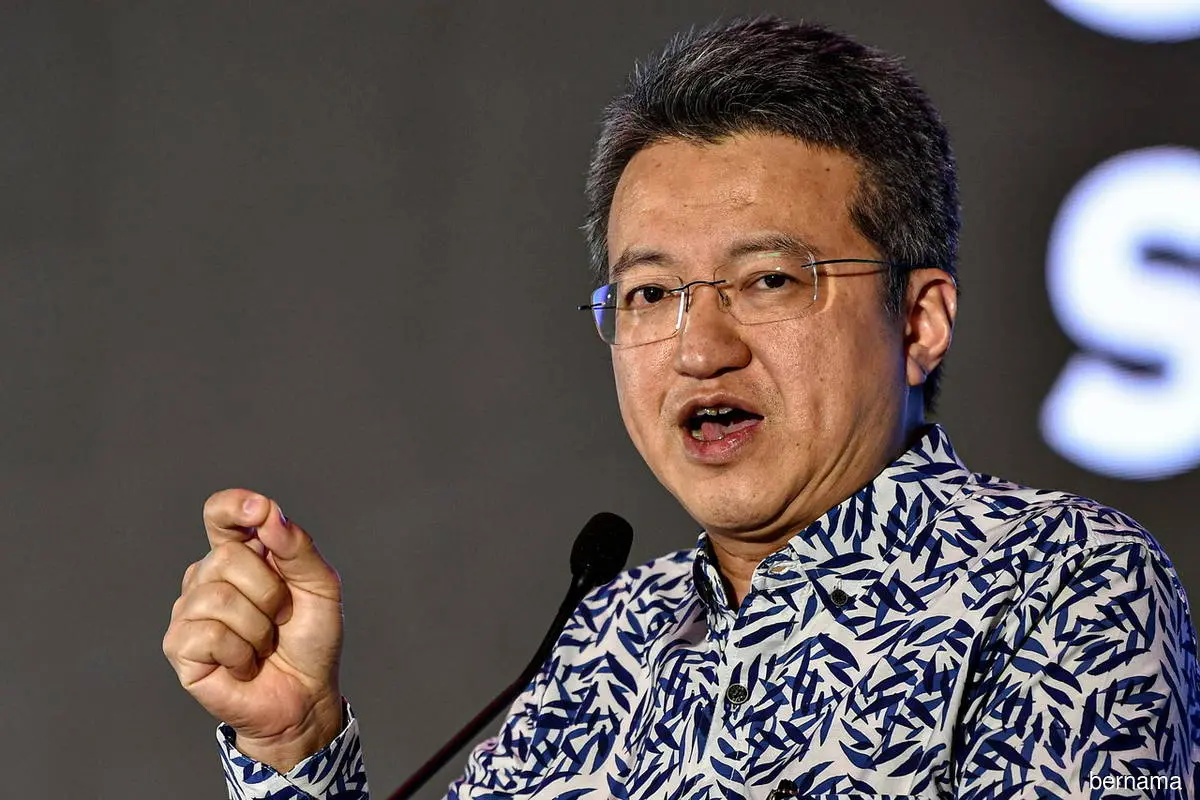
𝗚𝗼𝘃𝗲𝗿𝗻𝗺𝗲𝗻𝘁 𝗮𝘀 𝗮 𝗳𝗼𝗿𝗰𝗲 𝗳𝗼𝗿 𝗴𝗼𝗼𝗱
As the political calendar enters half-time, all leaders in the Unity Government need to embrace the idea that government could be a force for good, and therefore strive to do good more aggressively, and with transformative outcomes.
When Datuk Seri Anwar Ibrahim took the oath of office as Prime Minister on 24 November 2022, some of us were wondering whether the government would last for more than 3 months, 12 months, or 22 months (when Pakatan Harapan was in office before the Sheraton coup).
So far, the Anwar premiership and the Madani Government has proved more resilient than expected, especially in balancing the various contrasting political interests within the governing coalition and across the society.
Madani came together as a result of a royal command for a unity government under fortuitous circumstances post-GE15. The coalition has proven that it could govern together, and proved it had the right electoral formula in the 6-state elections and multiple by-elections.
Yet, leaders at various levels are often at a loss and appear defensive when challenged by political opponents. For instance, some UMNO leaders feel uncomfortable when told of “UMDAP” in a derogatory manner, while some DAP grassroots leaders thought UMNO’s agenda had taken precedence over DAP’s.
The Madani government detractors told the Malay/Muslims that this government favours non-Malay/Muslims whereas the non-Malay/Muslims were told that the Prime Minister was biased towards the Malays, and even for Palestinians.
To rise above these divisiveness, the Unity Government must present itself as the game changer the nation needs at this moment of history, and be ambitious about its collective agenda.
We live in a time when populists win elections across the globe. And populists have no agenda beyond anger. Politicians around the world seem to think that the only way to win elections is by fanning anger.
Domestically, the government had lost the trust of the majority of the public especially over the past decade or so following one of the largest scandals globally, the 1MDB scandal. Today’s government leaders from the Pakatan Harapan side, during the days of being in opposition, used to be critical of anything government. The problem is, some of us are still acting as single issue champions.
There is a need for leaders of the Madani Government to believe that the government can be a force for good, and that being a good government is the best way to win elections and build the nation.
For the Madani Government to be a force for good, there are 3 points which we should put emphasis on:
𝗔 𝗻𝗲𝘄 𝗽𝗼𝗹𝗶𝘁𝗶𝗰𝗮𝗹 𝗼𝗿𝗱𝗲𝗿
The Unity Government should aspire to build a new political order that will last for years or even decades.
The post-2022 scenario is not dissimilar to the post-1969 situation. After the May 1969 general election and the May 13 incident, the post-Independence political order collapsed into abyss. Globally and regionally there were also upheavals, including the Vietnam War, and the withdrawal of British troops from east of Suez, especially in Malaysia and Singapore.
Politically, Prime Minister Tun Razak Hussein changed the governing coalition structure from the equitable Alliance to a more dominant UMNO-led Barisan Nasional. The New Economic Policy set the framework for the economy. And, in the foreign policy realm, Malaysia moved away from the more pro-West stance under Prime Minister Tunku Abdul Rahman Putra al-Haj to a more non-aligned posturing since the 1970s.
Tun Razak built a political order premised on UMNO-led political and economic structures that lasted at least until the early 1990s when Prime Minister Tun Dr Mahathir Mohamad launched Vision 2020 and promoted the idea of a Bangsa Malaysia (Malaysian Nation).
In fact, the basic tenets of the Tun Razak political order only ended with the fall of the Barisan Nasional government in the 2018 general election, lasting altogether 48 years.
As the old order faded away, political vacuum existed for an extended period. The Madani government has a chance to herald a new political order that will last beyond election cycles.
𝗔 𝗻𝗲𝘄 𝗠𝗮𝗹𝗮𝘆𝘀𝗶𝗮𝗻 𝗻𝗮𝘁𝗶𝗼𝗻𝗮𝗹𝗶𝘀𝗺
Winning votes across the ethnicities and from both sides of the South China Sea is the right electoral formula for the Unity government. It also happens to be the secret sauce to build a resilient and prosperous Malaysia in times of global chaos and shift of global order from a unipolarity to a multipolar world.
The Unity Government needs a narrative of a new form of nationalism. The coming together of all ethnicities and all regions, especially Sabah and Sarawak, should be celebrated. If the Unity Government has no national narrative, it will continue to be divided by the passions of ethnic or regional “zero sum game”.
Supporters of the Unity government need a positive agenda to fight for. We cannot ask them to keep “defending” if the racial/regional zero sum framing is not changed.
The positive agenda for us to fight for is a Malaysian nationalism that will create a sense of belonging for all.
𝗥𝗮𝗶𝘀𝗶𝗻𝗴 𝘁𝗵𝗲 𝗳𝗹𝗼𝗼𝗿
For the nation to have a sense of belonging, the citizens need to feel economically secure. The objectives of the Madani Economy framework were to raise the ceiling and to raise the floor.
Prime Minister Anwar has raised the profile of the nation among the court of global opinion, and Malaysia finally got into the world news for the right reason, after a long while. Post-1MDB scandal, the world no longer sees us as a country of corrupters. Investments into Malaysia are at an unprecedented level, too.
Raising the floor should be this Government’s focus for the population to feel they belong. The Madani Government must be known as the government that has created the conditions for many Malaysians to experience upward social mobility and improvements of livelihoods.
Raising the floor should be front and centre in the articulation of government policies henceforth. And, for that to happen, there should be a two-prong strategy:
First, there needs to be a more concerted effort and a national consensus to raise wages for workers, create stronger Malaysian companies, and reduce dependence on foreign workers (which depresses wages for Malaysians).
Second, there is a need for the government to be bold and creative, and not to depend on the market as the only solution to most questions of livelihoods. Not all provision of services should be provided via commercialised solutions.
For instance, not everyone needs to own a house, there should be more provisions of middle class housing via rental options. Rental houses shouldn’t just be for the poor, as it is commonly assumed. The more extensive provision of public transport should also be worked upon so that most do not need to rely on private vehicles.
For the Unity Government to move forward and to have a worthy positive agenda to fight for, we need these game changers: to build a new political order, to champion a new Malaysian nationalism, and to raise the floor to build an economically secured citizenry.
Ultimately, we need leaders from among the government parties, and most importantly, the ordinary Malaysians, to feel that governments, especially the Madani government, is a force for good.
